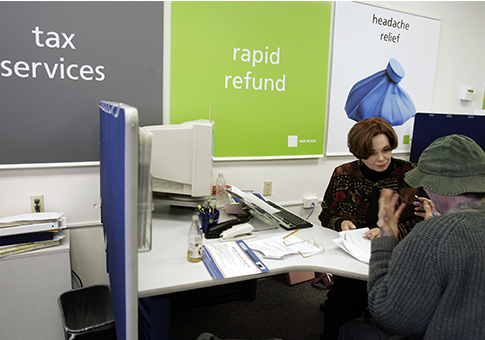"For well more than one of every three Americans, April 15th isn’t tax payment day, it’s payday from Uncle Sam."
So writes Stephen Moore in his latest book, Who’s the Fairest of Them All?, after analyzing who pays federal income taxes and who receives tax credits from the government.
In the book, published last week, Moore explores the relationship between the federal government’s tax policy, income distribution, opportunity, and fairness.
Moore notes that "the bottom 40 percent of income earners as a group paid no federal income taxes" in 2007. "Instead, they received net payments from the income tax system equal to 3.8 percent of all federal income taxes."
Moore told the Washington Free Beacon that he wrote the book because he knew "class warfare and income redistribution" would be the primary issues of the 2012 campaign.
The unequal tax burden has been a constant theme of the campaign. One of President Barack Obama’s refrains on the stump is his desire to make a country where "everybody is doing their fair share," a coded reference to tax increases on the wealthy. Gov. Mitt Romney’s "47 percent" comments have further galvanized the rhetoric on income and tax burden inequality.
"I wanted to get the facts out" about "who pays the taxes" and income inequality, Moore said.
Moore advocates for a "flat tax" in his book that charges a single rate across all income levels (exempting the very poor), calling it "the fairest of them all."
He argues that a lower and flatter rate would actually increase the government’s revenue, referencing in his book the "Laffer Curve" that shows tax rates above a certain point actually decrease revenue.
Moore called Obama’s economic policy of raising taxes on the top two or three percent of taxpayers a "foolish economic policy." He said this policy hurts those "who are the real drivers of employment."
He also characterized Obama’s campaign as anti-Wall Street and anti-Bain Capital, attacking Gov. Romney’s financial successes and wealth.
"This is all denigrating success," Moore said. "You want policies that try to make poor people rich, not ones that make rich people poor."
Moore pointed out an irony of Obama’s policies: While Obama wants to raise the top marginal tax rates in the name of fairness, "the best way to soak the rich is to cut the tax rate," he said.
In the first chapter of his book, Moore attacks the idea of "fairness" as equality of income that results in a policy of welfare redistribution.
Moore characterized true fairness as "equal opportunity," providing "the most opportunity for the" greatest number of people.
Moore told the Free Beacon that a minimal welfare system for the truly poor is a positive aspect of our wealthy society.
"We don’t want people falling through the cracks. We want a safety net," he said.
But he noted that these benefits should be limited and connected to employment when possible. Giving benefits without work can actually reduce the workforce, he said.
"We’re actually paying people to sit idle in this recession," he said.
This safety net does not imply equal distribution of income, however. "If you want that policy, you can move to Cambodia where everybody is equally poor," he said.
This view of fairness implies a particular view of government. The government that "governs least governs best," Moore said.
The "tax-and-spend Keynesian model has once again been" debunked, Moore said.
Gov. Romney, Moore said, has a plan for cutting taxes. And "every time we have employed that technique," the economy has grown, Moore said.
